Lorraine Toussaint: Prison Tough To Everyday Lovely
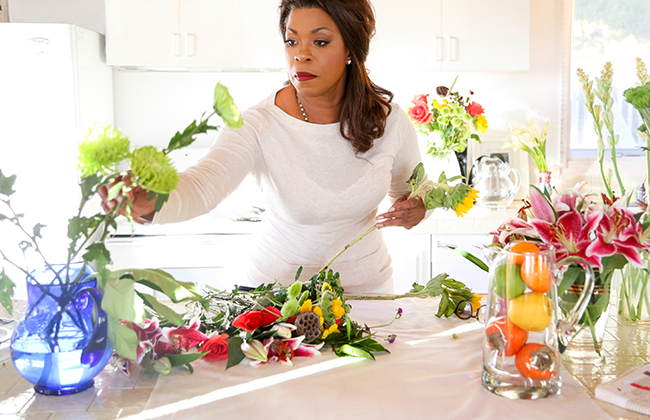
By Bob Nesoff
Lorraine Toussaint spent her time in prison and has made a clean break. The “Orange Is The New Black” star has transitioned from the penitentiary to the matriarch of a new family in Fox’s “Rosewood.”
The tough talking momma in ONB is, in real life, a pleasant, soft-spoken woman who is enjoying life and working on new projects that reflect her persona.
NYLM: We understand that you have a new project. A web site called “Every Day Lovely.” What’s that all about?
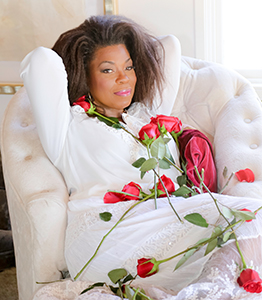
Toussaint: Oh, wow. You’re the first person to ask me about that. We haven’t made an announcement. I’ve been thinking about this for years. It’s an idea I’ve been living with for most of my life - or at least the past 25 years. Maybe longer.
It’s a web site that encourages people. Life is short and precious and deserves to be lived in a lovely way. Every Day Lovely speaks to finding the loveliness in every single day. It shows that you don’t have to be extravagant or have expensive things. There’s a shift of perceptions and looking out to life as lovely.
We find what we look for and I have been a committed searcher for lovely most of my life. At the site I’ll talk candidly, openly and transparently. I’ll talk about my particular journey - the lovely and not so lovely things that happen: parenting, dining, interruptions, the capacity for each of us to interrupt our busy days and difficult times; to have lovely things uninterrupted so that we don’t keep on going in a stressful or angry way that does not serve mind or spirit.
The crack in the ceiling allows the light to come in. When things crack, that’s when the light shines through. This will be an honest blog and I think will help people find that light.
It goes online January 11 and can be found at:
EverydaylovelybyLorraine.com
NYLM: How do you feel about leaving Orange is the New Black? The show is popular and should be around for a long time.
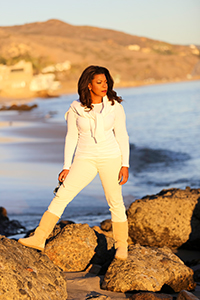
Toussaint: I have lots of feeling about that. I’ll miss the women. I got to be very close with them and that bond is very real. For a handful of them it will be a lifelong friendship. I miss seeing them every day and have an odd feeling in my belly about that. That being said, I’m not sure how I would have maintained that level of feeling for a year. It was challenging to sustain and there was a feeling of exhaustion to carry that much density.
Being back in New York was fun and challenging. But now I’m Donna Rosewood, matriarch of the Rosewood family. It’s an interesting procedural drama, it straddles family. My son (in the show), Mark Chestnut, who plays the title role, is a pathologist. He takes on unusual cases. He has a host of compromising physical issues with some that are life-threatening. He is a man who is juggling these challenges.
NYLM: How do you feel about the new role?
Toussaint: We are all products of our circumstances and breeding. It’s lovely to be actually playing a more normal mother. Vee (her character in “Orange”) and Donna share many qualities; sort of two sides of the same coin. But I must say that it is a bit of a vacation; a respite psychologically and spiritually easier for me to embody this character.
One reason I took this role is that I’ve never played a just a mom where the focus is on her children. She’s a retired school principal at a cross-road in her life. She’s gotten divorced and is now a woman in mid-life who is devoted to her children, especially one who has been critically ill most of his life.
I’m in my mid-50s and trying to reinvent myself. This is a scary place for many women and because of that I have a kinship for Donna Rosewood.
NYLM: You are classically trained and studied at Julliard. You’ve done Shakespeare. That’s quite a leap from The Bard to Orange is the New Black.
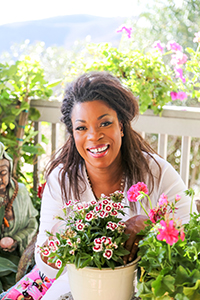
Toussaint: Shakespeare to prison? Add 25 years between the roles. I was classically trained to within an inch of my life. I have been studying since I was 12 years old. I went to the High School of Performing Arts and then went to Japan to study avant garde Japanese theater. I studied the traditional Japanese dance style of kabuki there.
The thing that all of that classical training continues to do for me is help me to approach roles allegorically. Part of that is at the core of us as human beings. As Shakespeare would say: “We hold the mirror up to the light of nature.”
I enjoy the core, the essential self. How do I identify what that is? When I look at a character like Vee, who is mean in many ways, that level of hubris is Greek tragedy. You are internally playing Clytemnestra, the wife of Agamemnon, the leader in the Trojan War. Clytemnestra, the Trojan women, Lady Macbeth are the kind of roles that build internal stamina.
Life is not TV-sized. This is not what you call “scratch and sniff” acting. One reason I went to Japan is because I wanted to study their forms of acting. Reality is overrated. There’s real and then there’s real. That level of classical training allows me a level of internal girth and expansion. Then you taper it to the medium in which you are playing.
NYLM: Is it true that you could be called “The Hollywood Imelda Marcos?”
Toussaint: Oh my, yes. I love shoes. I’m unapologetic about that. But I still don’t have the right pair of black shoes, the right pumps. I have 20 pair but they still aren’t the right ones.
What woman doesn’t feel that way? I have a shoe gene that must be honored. I got rid of half of them and still need a room in my home for those that are left. Life is short so travel heavy. I have more than 70 pair of shoes in Los Angeles. I have no idea how many there are in New York.
NYLM: With the career that you’ve had, can you point to one role that is your favorite?
Toussaint: The show “Any Day Now,” long before cable television was mainstream, I did that for the Lifetime Network. Annie Potts was in the show with me and I loved it because the form and content was a coming together of so many elements. It was fulfilling and enriching, relevant and fun at the same time.
It dealt with race in America and was provocative and challenging in a way broadcast television has never dared to do. I discovered creative courage while doing that show. It began to touch upon real, authentic transparency and dared to be unattractive and didn’t sacrifice truth and beauty or vanity.
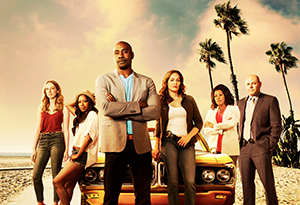
Very few producers are brave enough to do that. There are very few visionaries in our business. Racism is a result of benign ignorance and neglect. Most of the white males who run this business are just lazy thinkers; they don’t challenge their own brains. Most are unconscious and sleepwalk pretending they are awake.
If you were awake you’d look around and see the world we live in is not a small, exclusive community. The very brave producers-and I’ve met many of them - are willing to step outside of their own privilege and accept the responsibility they’ve been handed. We have the power to change how people think. That is the power that Hollywood has.
America is still a Mecca; we define how the world sees us and itself and how we perceive each other. There are producers taking up the mantle and taking responsibility for what we put out and not just perpetuating the status quo.
I’m doing a film: “Sophie and the Rising Sun,” that will be going to Sundance. The lead is a Japanese man in 1941. I play a woman who comes back to a tiny Southern town and is destitute. She goes to the town matriarch for a job and they take in the Japanese man who was found beaten at a bus stop.
NYLM: Do you feel you were passed over for an Emmy?
Toussaint: I think I was and I attribute it to my name beginning with a “T.” Some 75 percent of the nominee’s last names were in the first part of the alphabet. When I went to vote for myself, I scrolled down the list and it was quite a way down. I think people just voted for names that were easy to find.
I keep doing the work not for the rewards, but for the work’s sake. That is my salvation.



